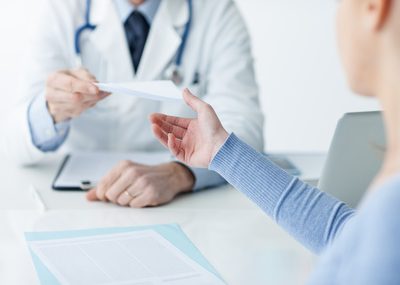COLONOSCOPY

Dr. Fishbein has achieved the highest yield or finding adenomatous polyp’s based on GIQUICK criteria on average in 50% of patients undergoing colorectal cancer screening. Nationwide rate is approximately 25%. Which means that we are finding adenomatous(significant) polyps in almost 50% of the patients.
Colonoscopy is a test that allows your doctor to look at the inner lining of your large intestine camera.gif (rectum and colon). He or she uses a thin, flexible tube called a colonoscope to look at the colon. A colonoscopy helps find ulcers, colon polyps, tumors, and areas of inflammation or bleeding. During a colonoscopy, tissue samples can be collected (biopsy) and abnormal growths can be taken out. Colonoscopy can also be used as a screening test to check for cancer or precancerous growths in the colon or rectum (polyps).
The colonoscope is a thin, flexible tube that ranges from 48 in. (125 cm) to 72 in. (183 cm) long. A small video camera is attached to the colonoscope so that your doctor can take pictures or video of the large intestine (colon). The colonoscope can be used to look at the whole colon and the lower part of the small intestine. A test called sigmoidoscopy shows only the rectum and the lower part of the colon.
Before this test, you will need to clean out your colon (colon prep). Colon prep takes 1 to 2 days, depending on which type of prep your doctor recommends. Some preps may be taken the evening before the test. For many people, the prep is worse than the test. The bowel prep may be uncomfortable, and you may feel hungry on the clear liquid diet. Plan to stay home during your prep time since you will need to use the bathroom often. The colon prep causes loose, frequent stools and diarrhea so that your colon will be empty for the test. If you need to drink a special solution as part of your prep, be sure to have clear fruit juices or soft drinks to drink after the prep because the solution may have a salty or unpleasant taste.
Colonoscopy is one of many tests that may be used to screen for colon cancer. Other tests include sigmoidoscopy, stool tests, and computed tomographic colonography. Which screening test you choose depends on your risk, your preference, and your doctor. Talk to your doctor about what puts you at risk and what test is best for you.
Gastrocure in West Orange, NJ performs comprehensive cancer screenings for colon cancer and Barrett’s esophagus. He performs quality colonoscopy using high definition optical colonoscopy, narrow band imaging to identify early flat lesions in the right colon which could be missed during routine colonoscopy. In difficult cases we use a Water Immersion Colonoscopy technique to complete procedures which decrease pain and sedation amount for patients.

